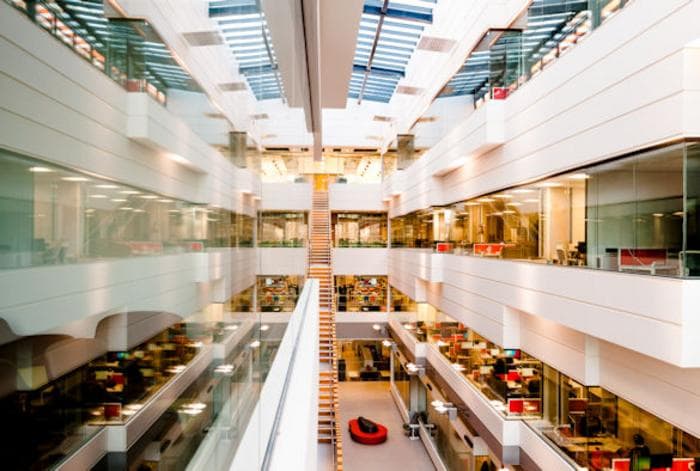
A £12 million UK research hub will develop state-of-the-art AI for chemistry and accelerate its adoption, following a combined investment from the Engineering & Physical Sciences Research Council (EPSRC) and consortium partners.
The AI for Chemistry Hub or AlChemy will bring together leading academic researchers, industry and other stakeholders to promote a collaborative community, offer training and create new approaches at the rapidly evolving AI-chemistry interface to position the UK as the global leader in digital chemistry.
AI tools such as machine learning, automation and robotics have the potential to speed up chemistry discoveries to address key societal needs.
AIChemy will ensure that the chemical sciences community is able to exploit the AI revolution so that researchers can provide solutions to global challenges such as global health.
Professor Andy Cooper is from the University of Liverpool’s Department of Chemistry and Materials Innovation Factory (MIF).
He said: “This is the UK’s first academic-industrial institute of its kind dedicated to supporting collaboration between chemistry and AI researchers.
“There is huge scope for chemistry researchers to work more effectively with AI researchers, and this new hub will bring together two separate disciplines to build a new cohesive UK research community.”
The UK-wide consortium brings together internationally recognised researchers in AI and those at the interface of AI for chemistry from nine academic institutions: Imperial College London, the University of Liverpool, Queen’s University Belfast, UCL and the Universities of Cambridge, Manchester, Oxford, Southampton and Strathclyde, alongside more than 15 industry partners.
AIChemy will draw on world-leading specialist facilities and research institutes where cross-discipline working already exists, including DigiFAB and the I-X Centre for AI in Science at Imperial College London and the MIF at Liverpool.
Together, the hub aims to transform the UK landscape for the discipline of chemistry, transforming engagement with AI from a relatively niche activity to a core, platform methodology.
AIChemy: AI in Chemistry Hub is one of nine hubs funded through an investment of £80 million announced this week by EPSRC, part of UK Research and Innovation (UKRI).
Minister for AI, Viscount Camrose, said: “The investment we’re pouring into these new projects is only possible as a result of our pro-innovation approach to AI.
“The AI Regulation White Paper consultation response we’ve set out today will see us forging ahead with that plan, driving forward the next wave of brilliant AI innovations.
“These hubs will nurture new, cutting-edge breakthroughs, from healthcare treatments and more power efficient electronics to machine learning and chemical discovery.
“New projects being delivered by BRAID will also help to define responsible AI in key sectors such as education, policing, and the creative industries, ensuring public trust in the technology as we continue to harness its capabilities.”
Professor Dame Ottoline Leyser, Chief Executive of UKRI, added: “UKRI is supporting researchers and innovators to develop the next generation of AI technologies that will transform our economy and society.
“The investments announced today will help to deliver the capability the UK needs to realise the opportunities of this transformative technology.
“Through our £1bn portfolio of investments in AI research and innovation, we are supporting the development of new technologies, boosting skills, and accelerating the adoption of trusted and responsible AI.”
Image: University of Liverpool


